Search
Remove Ads
Advertisement
Summary 
Loading AI-generated summary based on World History Encyclopedia articles ...
Search Results
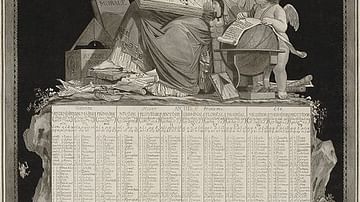
Definition
French Republican Calendar
The French Republican calendar, also known as the French Revolutionary calendar, was created during the French Revolution (1789-1799) in an attempt to build a new society separate from the vestiges of the Ancien Régime. First implemented...

Article
The Athenian Calendar
The term “Athenian Calendar” (also called the “Attic Calendar”) has become somewhat of a misnomer, since Ancient Athenians never really used just one method to reckon the passage of time. Athenians, especially from the 3rd Century BCE forward...
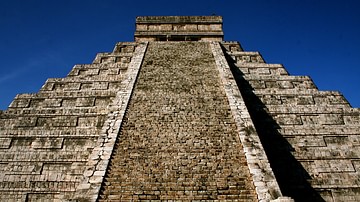
Article
The Maya Calendar and the End of the World: Why the one does not substantiate the other
The Popol Vuh recounts the story of twins who journeyed to Xibalba. For the Maya, their round of adventures serves as a metaphor for timeless, repeating cycles and for the regeneration of earth and all living things. – Gene S. Stuart, Mayanist...

Article
The Mesopotamian Pantheon
The gods of the Mesopotamian region were not uniform in name, power, provenance or status in the hierarchy. Mesopotamian culture varied from region to region and, because of this, Marduk should not be regarded as King of the Gods in the same...
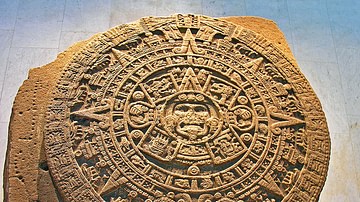
Article
The Aztec Calendar
The Aztecs of ancient Mexico measured time with a sophisticated and interconnected triple calendar system which followed the movements of the celestial bodies and provided a comprehensive list of important religious festivals and sacred dates...
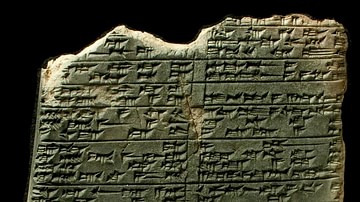
Article
Ashurbanipal's Collection of Sumerian and Babylonian Proverbs
Ashurbanipal's collection of Sumerian and Babylonian proverbs formed part of the famous Library of Ashurbanipal (7th century BCE) established at Nineveh for the express purpose of preserving the knowledge of the past for future generations...
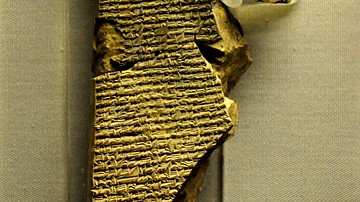
Article
Enuma Elish - The Babylonian Epic of Creation - Full Text
The Enuma Elish (also known as The Seven Tablets of Creation) is the Babylonian creation myth whose title is derived from the opening lines of the piece, "When on High". The myth tells the story of the great god Marduk's victory over the...

Article
The Origin & History of the BCE/CE Dating System
The BCE/CE dating system was first used in the 17th century and has been used since in scholarly publications read by people of all faiths and cultures in an effort to be inclusive. This system is also more accurate in that it makes no claim...
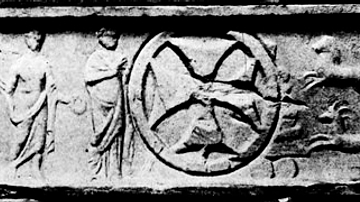
Image
Attic Calendar
Fragments of Attic Calendar re-used in the church facade. According to Deubner first Thargelion, then Gemini, then Skirophorion, then the sacrifice of an oxen at the Dipolieia, then Cancer, then Hekatombaion, then a personification of Theoria...
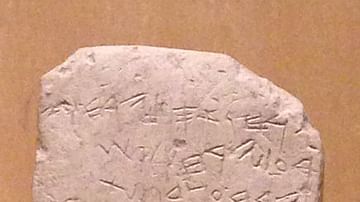
Image
Gezer Calendar Original
The original tablet of the so-called Gezer calendar from the site of Tel Gezer in modern-day Israel. It describes agricultural activities throughout the year at Gezer hence the name. The calendar itself though dates to the 10th Century BCE...